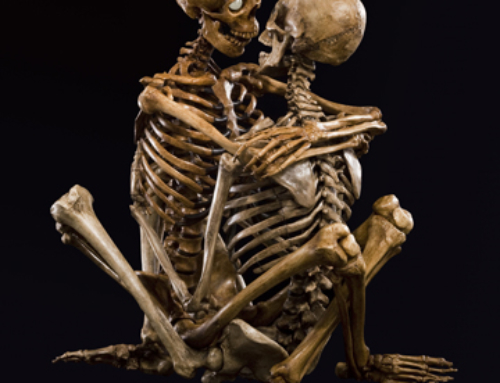SACRED DOUBT
by Rabbi Irwin Kula
Rabbi Irwin Kula, a good friend of the Catholic League, is the President of CLAL—The National Jewish Center for Learning and Leadership. He is the author of Yearnings: Embracing the Sacred Messiness of Life (Hyperion, 2006).
Mother Teresa’s passionate expression of doubt in her recently released “dark letters” is a reflection of the profundity of her faith and firmly places her in the tradition of the great spiritual figures shaped by the exquisite anguish of finite human beings genuinely yearning for the infinite. This window into Mother Teresa’s agonizing spiritual darkness and wrenching doubt about God, Jesus’ love, and prayer invites not only deep respect for her spiritual honesty but reflection about the character of authentic faith, especially in these days when faith is confused with certainty and doubt with weakness.
Mother Teresa’s letters are undermining to all fundamentalist faiths—be they religious or secular. She was not some God-intoxicated mystic confidently empowered to sacrificially offer her life in service to the poorest people on this planet. Yes, we might have liked her to have been in ecstatic union with God as it would allow us to get off the hook by either idealizing her as someone with extraordinary faith, the sort of faith we normal human beings could never possess, or by seeing her as massively psychologically deluded, the sort of delusion normal human beings ought never suffer. But it appears there is no escaping Mother Teresa’s challenge.
Neither an extraordinary faith in some simplistic sweet and light filled new age God, nor a belief in some fundamentalist God who ultimately saves if just heeded, nor some liberal secular humanism about doing good, enabled her to endure decades of wiping leprous sores, of feeding the hungriest of the hungry or of suffering with the dying of so many. It turns out that what motivated Mother Teresa was the depth of her doubt. She served, she bandaged, she fed, she healed, she worked, she smiled and she loved without any of the ongoing awareness of God’s presence that we assume she surely possessed.
Mother Teresa’s honesty about her spiritual emptiness is uncomfortable because we tend to see genuine faith and love as free of doubt. But nothing could be further from the truth. A mature faith, a rich love, a genuine relationship with God or with another person (it is no accident that every mystical tradition analogizes the two relationships) is born of the grit and insecurity of life. We yearn for that place with God or with another person that can banish anxiety, anguish, and insecurity. But any faith that is certain is no faith at all just as any love never doubted is very shallow love.
The paradox of love and faith is that the more deeply we love the more we risk and the greater the intimacy we desire the more vulnerable we need to make ourselves. We may try to convince ourselves otherwise with declarations to our lovers like “till death do us part” or proclamations about God’s unconditional love for us but the awesome truth about faith and love is that we can never be one hundred per cent sure we are loved by another human being or by God or whether we genuinely love another person or God with all our heart and might. Maybe this is why we need to hear “I love you” so often from those whom we most love and why so much traditional prayer proclaims our love for God and why so much new age meditation invites us to feel bathed in cosmic love. We can never be certain.
What makes Mother Teresa so much more fascinating now that we know about her painful doubt is that we realize her choice to live in service of others and mitigate suffering was a choice made every day to love in the grip of doubt, to do good without the certainty that doing good would make any ultimate difference, and to be bound to a vision and a call, once had but never to be confirmed again, that love was ultimately Real. No false dogma or illusions of certainty, rather the pain of living with the possibility of ultimate meaninglessness and abandonment. And how could it have been otherwise for Mother Teresa? Day in day out, caring for the most destitute on our planet, knowing (not just feeling) the depths of people’s suffering, and seeing the insignificance of her own actions relative to the enormity of that suffering, any posture but doubting God would have been a lie.
For Mother Teresa doubt was not simply part of faith and love; anyone who has ever loved deeply knows that doubt and faith are always in a dance. Doubt is a necessary path to greater intimacy whether with God or another human being. No doubt means no growth in love or in holiness. The profound teaching reflected in Mother Teresa’s “dark letters” is that: Doubt is a result of receiving guidance; doubt is a consequence of love, NOT a way of preventing or undermining it! Certainty is the enemy of compassion, doubt an invitation to prove, with our actions, that Reality/God/Self/ Cosmos, whatever we name that which we have all yearned for, if not tasted, is fundamentally Loving.
Mother Teresa connected her feeling of spiritual abandonment into an act of ego abandonment and it gave her unique access to the meaninglessness, loneliness and suffering in life that most of us will do anything—drugs, shopping, watch television, celebrity worship, meditate, worship God—to avoid feeling. That access compelled her to impose compassion upon the suffering, solidarity upon the loneliness, and love upon the meaninglessness. In her extreme devotion and doubt Mother Teresa is an absorbing contemporary model. For many of us devotion requires certainty and doubt undermines devotion. The paradox of faith, as illuminated by Mother Teresa, is that to all appearance God is indeed absent, contrary to our religious fundamentalist’s dogmatic assertions, and yet there is a possible faith, contrary to our secular fundamentalists, that can supply what is lacking even in faith—a faith that combines active and engaged devotion to healing people’s pain and fiercely honest doubt about whether such action makes any ultimate difference.
From this sacred contradiction may well flow the sort of joy that must have been the reason for Mother Teresa’s ever present smile. The joy my tradition calls “simcha shel mitzvah” the joy of doing that which one knows one must do. Perhaps, in these days when certainty not only undermines our search for the truth and our capacity to love but threatens us with destruction, what we need is Mother Teresa type doubt— sacred doubt—that births humility and compassion that paradoxically proves faith more than any creed or dogma.





